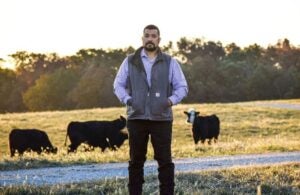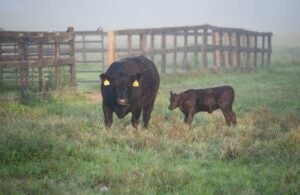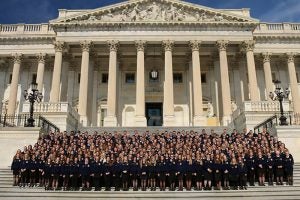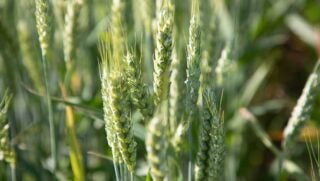The concept of fetal programming has been evolving in the beef industry for several decades as more research is done.
“Fetal programming is the time when tissues and organs are created during embryonic and fetal development,” says Jason Sewell, Ph.D., cattle nutritionist with Purina Animal Nutrition. “During this time, improper nutrition can permanently alter various metabolic and physiological functions of the fetus as it grows into an adult.”
Recently, Purina Wind and Rain mineral was featured in a gestational nutrition research study by North Dakota State University. The study aimed to illustrate the importance of providing minerals and vitamins during gestation and its impact on fetal programming.
Replacement heifers were synchronized and bred with sexed semen to create heifer calves. The resulting heifer calves were grown to a breeding age of 15 months upon conclusion of the study.
“The only difference between groups was in the gestational nutrition of the dams, where Wind and Rain mineral was fed to the study group at a rate of 4 ounces per head per day. The control group didn’t receive any supplemental mineral during gestation,” says Sewell.

Throughout the study, both groups of dams were fed a basal diet of silage, hay, and dried distillers grain to gain 1 pound per head per day. The basal diet wasn’t deficient in minerals compared to National Research Council requirements for cattle. Liver biopsies of both the control and study heifers were adequate for trace mineral profiles.
“Following calving, both the study and control groups received mineral supplementation,” says Sewell.
The supplementation of Wind and Rain minerals significantly increased colostrum volume and weight compared to the control heifers. The dams supplemented with Wind and Rain minerals produced 50 percent more colostrum than the control dams. Because of the increased volumes, the test calves received 1.5 times more trace minerals via colostrum, helping ensure they would get off to a good start.
At weaning, the heifer calves born from dams receiving Wind and Rain minerals had larger ribeye area, chest, and abdominal circumferences than the controls. Weaning weights for the study calves were 36 pounds higher.

“It can be theorized that the calves from dams fed Wind and Rain mineral could be more reproductively mature because of those improvements,” says Sewell.
Additionally, the study calves carried out the weight advantage from weaning until the study stopped at 15 months of age.
“An advantage in weight gain and ribeye area could also be expected if those calves had been utilized for terminal production, yielding more pounds of beef produced,” says Sewell.
Third-party university research is vital to help validate the findings from Purina’s own research at the Purina Animal Nutrition Center and on-farm or ranch research done with producers. Purina didn’t sponsor this particular study, but there have been many other university research studies Purina has sponsored to help verify findings.
“The significance of mineral and vitamin supplementation is often overlooked. Something as small as feeding 4 ounces of a mineral and vitamin product per head per day profoundly impacts the offspring’s performance and productivity,” says Sewell. “This study does a fantastic job of quantifying the benefits of feeding a mineral and vitamin supplement during a critical development period.”
This piece was submitted by Purina.










